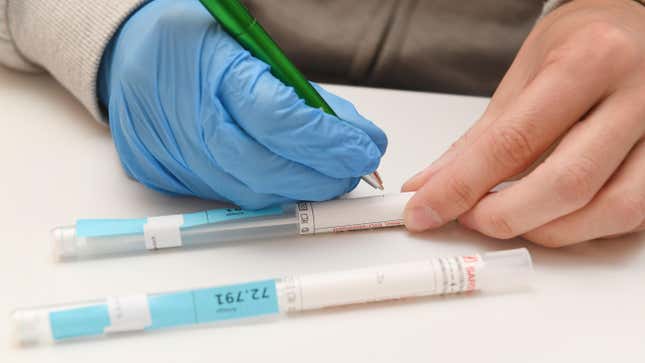
DNA forensics, at their best, are intended to bring an air of scientific confidence to the criminal justice system to hopefully prevent the worst kinds of wrongful convictions. Those good intentions are made meaningless though when bad cops decide to fight dirty.
Officers serving in the Virginia Beach Police Department reportedly did just that by showing suspects forged documents with fake DNA evidence supposedly linking them to a crime in order to coerce them into a confession or secure a conviction, according to state Attorney General Mark Herring.
Police reportedly used the forged DNA documents at least five times between March 2016 and February 2020. The fake lab certificates, which purported to come from the Virginia Department of Forensic Science, appear to have seemed pretty convincing. The documents were adorned with an official seal and letterhead from the agency and in two cases, they featured a signature from a fake employee. In at least one case, DNA documents were even presented as evidence in court. (It’s unclear if the documents were presented as legitimate DNA evidence.)
The practice was only discovered in April of 2021 after an assistant commonwealth’s attorney requested a copy of one of the forged documents from the state’s Department of Forensic Science. Of course, that request came up empty because the requested document never existed in the first place.
“This was an extremely troubling and potentially unconstitutional tactic that abused the name of the Commonwealth to try to coerce confessions,” Herring said in a statement. “It also abused the good name and reputation of the Commonwealth’s hard-working forensic scientists and professionals who work hard to provide accurate, solid evidence in support of our law enforcement agencies.”
The revelations about the forgeries are the result of an investigation launched by Herring’s Office of Civil Rights. Now, following the investigation, the police department has entered into a two-year conciliation agreement with the attorney general that stops the practice from being repeated in the future and adds more modest reforms. None of the officers who engaged in the deceptive practice appear set to receive any form of punishment for creating or using the forged documents. Here’s where we pause for a collective, long sigh.
While Virginia’s Office of Civil Rights will reportedly notify individuals who were interrogated using the fake documents, there’s nothing suggesting there are any plans to overturn those convictions.
Incredibly, all of this wasn’t even technically illegal. As the Washington Post explains, police are generally allowed to lie during an investigation in order to solicit a confession so long as their tactics don’t lead to an “involuntary” confession. Illustrating this, The Post cited a 1997 case in Virginia where an appeals court upheld a murder conviction after police coerced a confession by showing a man fake fingerprints suggesting he was implicated in the crime. Talk about justice.
“Such ploys [falsifying DNA records] are just a factor to be considered in whether a confession was voluntary,” Defense Attorney Chris Leibig told the Post. “Reprehensible does not equal unconstitutional.”